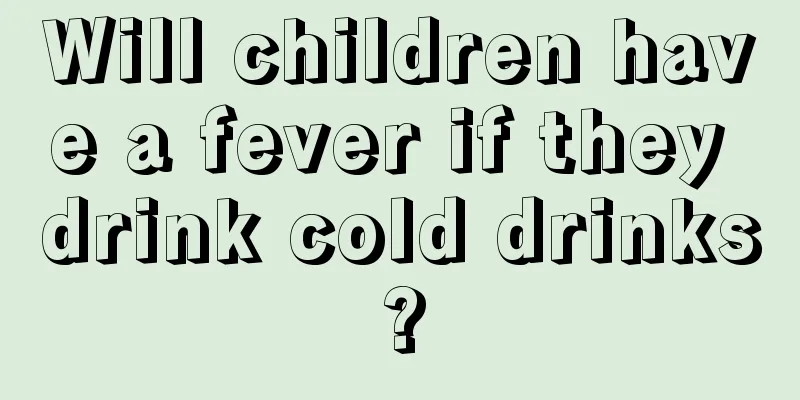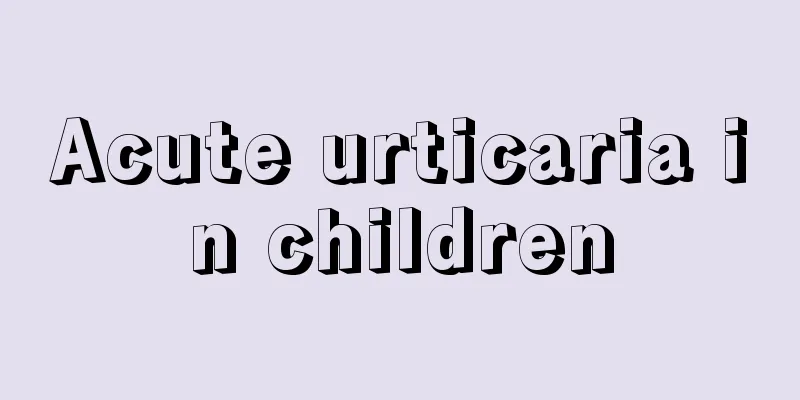What are the principles of treatment for infant diarrhea?

|
The growth of infants and young children requires the care of their parents, because babies at this stage are not only very sensitive to food and environment, but also to climate factors. If they are not carefully cared for, it is easy to cause diarrhea in babies. Diarrhea will cause a large amount of nutrients in the baby's body to be lost and is not conducive to physical development. Therefore, it is necessary to actively treat it. So what are the principles of treating infant diarrhea? First, what are the principles of treating infant diarrhea? Prevent dehydration. Children with diarrhea who do not show signs of dehydration or who have mild dehydration can be treated at home by giving them enough fluids, such as oral rehydration salts (ORS), from the start of their diarrhea to prevent dehydration. ① Breastfed infants should continue to be breastfed and the frequency of feeding should be increased and the duration of single feeding should be prolonged; ② Infants who are mixed-fed should be given oral rehydration salts (ORS) or other clean drinking water on the basis of breastfeeding; ③ Artificially-fed infants should choose ORS or food-based rehydration such as soup, rice water, yogurt drinks or clean drinking water. Second, correct dehydration. Mild to moderate dehydration: Take ORS orally within 4 hours. Observe the child's condition closely. If the child still shows signs of dehydration after nearly 4 hours, adjust the rehydration plan. Severe dehydration: intravenous rehydration or feeding tube rehydration (must be done in the hospital). Children with severe diarrhea, inability to eat normally, frequent vomiting, fever, blood in stool, or obvious signs of dehydration must be sent to the hospital for treatment promptly. What are the principles of treatment for infant diarrhea? Continue eating. Fasting should not be done during diarrhea. Short-term fasting is allowed when vomiting is severe in the early stages of the disease. Children with mild dehydration can continue to be fed normally. Children with moderate to severe dehydration should immediately resume an age-appropriate diet once the dehydration is corrected: breastfed children should continue to be breastfed, artificially fed children under 6 months old can continue to be fed formula, and children over 6 months old can continue to eat the daily foods they are accustomed to, such as porridge, noodles, rice porridge, eggs, minced fish, minced meat, and fresh fruit juice. Encourage the child to eat. If the child eats little, increase the number of feedings. It is not recommended to feed children foods containing high concentrations of monosaccharides, such as carbonated drinks, jellies, desserts, and canned fruit juices. Viral enteritis often causes secondary disaccharidase (mainly lactase) deficiency. Suspected cases can be temporarily switched to low (lactose-free) formula milk for 1 to 2 weeks, and the original feeding method can be resumed after the diarrhea improves. Use medication rationally. According to the characteristics of the diarrhea and accompanying symptoms, antidiarrheal drugs should be used for treatment. |
>>: What are the dangers of children sleeping late?
Recommend
How long should children take calcium supplements?
When it comes to calcium supplementation, there a...
What should I do if my child has diarrhea after a fever?
It is necessary for families to know what to do i...
What should I do if my baby is frightened?
Because the baby is still relatively young, his p...
What causes blisters on baby's feet?
For babies, if small blisters grow on their feet,...
What to do if your child has mumps
Children's physical health is of great concer...
Baby's spleen and stomach diet
If the baby's spleen and stomach are in good ...
How to quickly relieve the pain of tooth decay in children, these pain relief tips
Tooth decay is most common in childhood, and the ...
How can children grow taller?
The healthy growth of children is what we care ab...
Isotope treatment for infantile hemangioma?
Isotopes, as a commonly used scientific treatment...
How long does it take for a newborn to turn white?
Many babies have dark skin when they are born, wh...
Beware of 6 carcinogens lurking around children
Avoid going to underground garages Gas pollution ...
My child coughs every time he catches a cold
Children generally have poor immunity, so they ar...
The reason why baby's nails are turned outward
In fact, there are many issues that need to be pa...
How old can a baby sit in a walker?
If the baby sits in a walker, mothers will be mor...
Is it normal for a newborn to eat as soon as he wakes up?
It is usually normal for newborns to eat as soon ...









